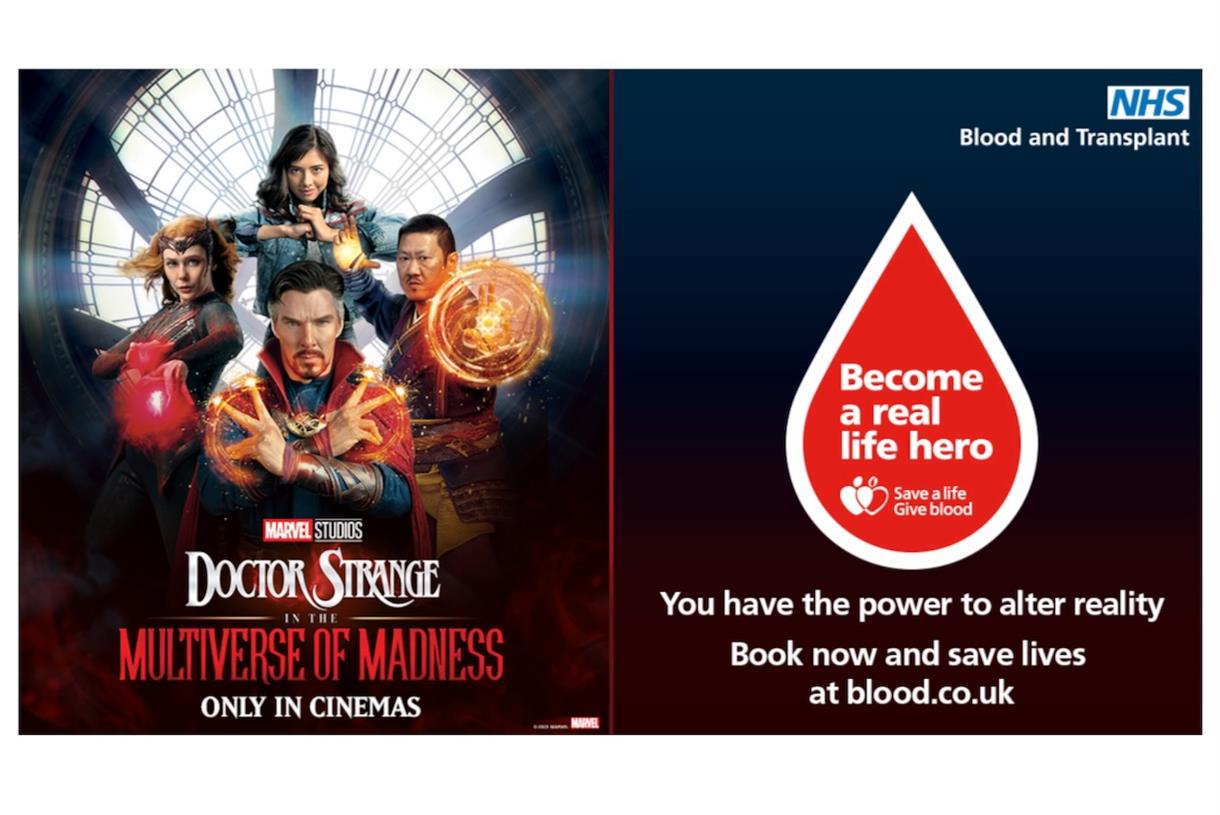Only Guide You Need to Start an Advertising Agency: 10 Steps to Success
Starting a business is always something, but to start an ad agency, you must know the tips and tricks to reach the full growth potential while avoiding pitfalls as much as possible. When you read this blog post and...

Starting a business is always something, but to start an ad agency, you must know the tips and tricks to reach the full growth potential while avoiding pitfalls as much as possible.
When you read this blog post and follow 10 steps, you’ll be completely ready to start an ad agency.
Here’s what you’ll learn in this blog post:
Find Your Niche: Choose a focused area like digital marketing or influencer campaigns to stand out and build expertise. Name Your Agency: Pick a memorable, simple name that reflects your services and is easy to find online. Build a Business Plan: Set clear goals and outline how you’ll get clients and manage finances. Set Up Infrastructure: Invest in tools for communication, project management, and advertising to streamline operations. Create an Online Presence: Optimize your website for SEO and use social media to attract clients. Announce Your Launch: Use social media and cold outreach to spread the word about your agency’s launch. Leverage Social Media: Platforms like TikTok, Instagram, LinkedIn, and YouTube help you reach potential clients. Secure Clients: Use directories like DAN Marketplace, network, and run lead generation campaigns to attract clients. Scale Smartly: Automate tasks, outsource when necessary, and hire specialists to maintain quality as you grow. Handle Legalities: Register your agency, use contracts, and manage taxes to ensure smooth operations.Start Your Ad Agency Today with These 10 Key Steps
If you’re ready, I’m ready to answer every question in your mind, especially the main one, “How do I start an advertising agency?”
Here’s how:
Step 1. Think What Will Be Your Ad Agency’s Niche
When starting an advertising agency, you need to identify your niche at the beginning, of course. Or, you would throw darts in the dark, hoping to hit the mark without a clear aim.
By narrowing your focus to a particular industry or service, such as digital advertising for local businesses, influencer marketing, or performance-based campaigns, you’ll make it easier to build expertise and offer a targeted, effective solution for your clients.
Maybe you can consider focusing on a niche as a restricting act. When you don’t restrict yourself, it means that your efforts, energy, and expertise go everywhere instead of creating a peak to climb up successfully!
To make sure that everything works like a charm when starting an ad agency, you can choose an area that you’re passionate about and where you have deep expertise.
Here’s a real-life example demonstrating the importance of choosing a niche for your agency with some extra tips that I’ll also cover in this blog!
Step 2. Decide on Your Ad Agency Name
Your name gives potential clients the first impression of who you are and what you offer, so it needs to be impactful and aligned with your services. A strong name builds credibility, while a confusing one can push potential clients away.
Here’s what to keep in mind:
Be clear and memorable: Your name should be easy to spell, pronounce, and remember. Complex names can be hard for clients to recall and may weaken brand recognition. Reflect your niche: Your agency’s name should give a hint about what you specialize in. If you’re focused on social media or performance marketing, including those terms can help attract the right clients. Future-proof your name: A name that’s too specific might limit your agency’s growth down the line. Pick something versatile that can grow with your business, even if you expand into new services. Check availability: Ensure your chosen name isn’t already in use and that matching domain names and social media handles are available for consistency across platforms.If you’re unsure how to choose from the vast sea of name options, I sincerely suggest checking out my blog, which offers over 100 digital agency names and ideas and an agency name generator to give you even more options tailored to your preferences and style!
Step 3. Build Your Ad Agency Business Plan Now
Every agency needs a solid advertising agency business plan before opening its doors. Let’s summarize what your business plan should cover:
Set your goals: Think about what you want to achieve in your first year and beyond. Break it down into smaller, reachable steps to help keep your agency on track. Plan your finances: Figure out your startup costs, like technology, office space, and staff. Budgeting helps you cover your initial expenses and manage long-term growth. How you’ll find clients: Decide how to attract customers—whether through networking, referrals, or digital marketing like SEO and ads. Your marketing approach: Use content creation, social media, and other marketing tactics to get your brand in front of the right audience.An agency business plan provides you with a clear roadmap for growth, financial health, and client acquisition. If you are not sure where to start, I suggest using Digital Agency Network’s business plan template, which is probably the most in-detail piece that you can find!
➡️Click here to download DAN’s business plan template now.
If you need something compact and undetailed, here are other good options:
HubSpot’s one-page business plan for agencies Upmetrics’ advertising agency business plan The Business Model Canvas, designed by Alexander Osterwalder and explained very briefly in the TikTok below.Step 4. Ready, Set, Build Your Infrastructure!
Your agency’s infrastructure will literally be the backbone of day-to-day operations. Whether you’re running remotely or setting up a physical office, and whether you’re starting a digital marketing agency or an ad agency, you’ll need to plan a strong infrastructure to keep things running smoothly.
Remote or physical office: Choose what suits your team’s style. A physical space can promote collaboration, while remote setups offer flexibility. Tech stack: Invest in tools to keep things moving. Platforms like Basecamp, ClickUp, or Monday.com can help organize projects and keep everyone on track.Advertising tools: Google Ads and Facebook Ads Manager are must-haves for managing PPC campaigns, while Semrush and Moz help boost organic traffic through SEO. Collaboration tools: Communication tools like Slack, Discord, or Microsoft Teams are essential. (My personal favorite is Discord, with its fun interface, dynamic vibe, and features like bots and GIFs that make it more enjoyable!)
Step 5. Can Clients Find You? Build a Solid Online Presence
Without a strong online presence, your chances of attracting enough clients for success are nearly impossible! In fact, about 70% of B2B clients do the majority of their research online before making decisions, so if your agency isn’t visible, you’re missing out on potential business!
But, what must you do to dominate the online world when starting an advertising business?
First of all, you should optimize your website for SEO. I suggest starting by conducting thorough keyword research to identify terms your target audience is searching for and incorporating these keywords naturally throughout your website.
You should make sure every page on your site, from “About Us” to “Our Team,” is optimized with the right keywords. It doesn’t matter which page it is; each one should align with your SEO strategy to help improve search visibility.
Starting a blog is another great way to boost your presence. You can write posts that give advertising tips, break down successful campaigns, or even analyze industry trends. This way, you can build your reputation as an authority in the field while offering useful content to your audience, which keeps them engaged and returning for more!
Speaking of useful content, Google adores it.
The more helpful and relevant your posts are, the better your chances of ranking higher on SERPs.
Google rewards sites that provide value to users. You can think about detailed guides, tips, or insights that people are actively searching for.
To help you kickstart your content creation process with more confidence, here are the key tips to understand Google’s quality content guidelines:
| Make sure your content is original, easy to understand, and adds value beyond the basics. |
| Use clear and honest titles without exaggerating. |
| Keep the content free of mistakes, well-organized, and good enough that people would want to share it. |
| Show trust by providing clear sources and showcasing the expertise behind it. |
| Ensure the content is accurate and written by someone who knows the topic. |
Step 6. Declare Your Arrival Loud and Clear
Before your agency is fully up and running, start making some noise.
Social media is your go-to for this. Platforms like LinkedIn, TikTok, and Instagram are perfect for announcing your arrival and showing off your expertise with a fresh, dynamic edge.
Run a countdown. Offer early-bird promotions. Show behind-the-scenes prep. Highlight team introductions. Explain what makes you unique.And don’t forget to mix in cold outreach alongside social media efforts. A well-crafted, personalized email or LinkedIn message can be incredibly effective in introducing your agency to potential clients directly. Highlight your strengths, mention how you can meet their specific needs, and make a connection before your official launch.
Here’s a mini guide for dos and don’ts of LinkedIn cold messaging by Tim S. Dodd:
| Focus on Them: Use their name and “you/your” to keep it personal and centered on their needs. | Avoid “Me” Messaging: Don’t make it about you. Avoid starting with “We do X, Y, Z” as it shifts focus away from the prospect. |
| Industry-Specific Messaging: Tailor the message to their industry, like “We help small dental practices achieve X.” | Don’t Blast Generic Messages: Personalize every message. A one-size-fits-all approach doesn’t work. |
| Highlight Outcomes: Emphasize results like “Our clients saw a 25% increase in leads in 60 days.” | Don’t Overload on Services: Focus on specific results, not a long list of services. Too much info can overwhelm. |
| Strong Call to Action: Be direct, like “Let’s schedule a quick call—what time works best for you?” | Don’t Use Vague CTAs: Avoid soft CTAs like “Let me know if you need help.” Be clear about the next step. |
Step 7. Kill It on Social Media
The use of social media is critical for any agency, not just for a social media marketing agency, of course. It’s where you can connect with potential clients, build trust, and showcase your expertise. A strong social media presence can drastically help your agency gain visibility, establish authority, and drive leads, regardless of the size of your business.
To build a solid online presence, focus on dominating platforms like TikTok, Instagram, LinkedIn, and YouTube. Each of these platforms serves a different purpose, depending on your goals and audience.
TikTok is fantastic for reaching younger audiences like Gen Z. In fact, nearly 40% of Gen Z use TikTok for brand discovery, often treating it like a search engine. Instagram excels at visual storytelling, perfect for showing off your portfolio and engaging users with Stories and Reels. LinkedIn is your go-to for B2B marketing and networking, where you can connect with decision-makers and business owners. YouTube helps you build authority through long-form content, like tutorials and case studies, making it ideal for deep dives into your work.Step 8. Secure Your First Clients & Keep Them Coming Back for More
Platforms like DAN Marketplace are a goldmine, especially for newborn agencies to connect with clients! With detailed profiles, reviews, and transparent pricing structures, the Marketplace helps you build relationships that foster long-term success.
Also, online directories like the one Digital Agency Network offers rank highly in Google searches like “agencies in [city],” making your agency accessible, visible, and desirable to brands.
Besides leveraging strong players in the digital marketing world like directories and marketplaces, here’s very briefly what you should do to get agency clients:
Networking: Attend industry events and stay active on LinkedIn. Engage in conversations, comment on posts, and join relevant groups. Lead Generation: Run targeted campaigns on LinkedIn and Facebook Ads. Focus on specific niches or industries to attract the right clients. Referrals: Encourage happy clients to spread the word. A simple request for a testimonial can work wonders for your credibility and lead generation. Community Engagement: Get involved in online communities or forums related to your niche. Offering advice and sharing expertise builds trust and gets your agency noticed. Cold Outreach: Don’t hesitate to send personalized emails or messages to potential clients. Mention specific ways your agency can help them based on their business needs.Once you’ve secured your first clients 🥳, don’t forget to share testimonials and success stories on social media, your website, or even in cold emails. According to Nielsen, 92% of people trust recommendations from individuals over brands, making these testimonials powerful tools.
Then what?
Keep your clients happy!
Winning clients is just the beginning. To keep them, follow these steps one by one:
Step 9. Scale Smart without Losing Quality
Growing your agency is the goal, but doing it right takes some strategy. You’ve worked hard to build a reputation for quality, and you don’t want to lose that as you grow.
Here’s how to keep it smooth:
Hiring: Bring in specialists to lighten the load on your current team. This way, everyone can stay focused on delivering their best work without getting overwhelmed. Automation: Use tools like Zapier to handle repetitive tasks so your team can spend time on the important stuff—like client strategy and creative work. Automation keeps things efficient as you grow. Outsource when needed: Don’t be afraid to outsource digital marketing tasks as needed. This frees up your team to focus on the core areas of your business that matter most.Step 10. Handle the Legalities with Care
Before you dive into client work, it’s essential to get your legal structure in place. Register your agency as a legal entity, whether that’s an LLC, Corporation, or something else.
By doing this, you will protect your personal assets and make your agency look more credible to potential clients. Depending on where you’re located, there may also be specific permits or licenses required to operate.
Contracts are a must for every project. They help set clear expectations, outline responsibilities, and provide legal protection for both you and your clients in case something goes wrong.
A solid contract covers the scope of work, payment terms, timelines, and what happens if either party wants to exit early.
Also, don’t forget about taxes. Depending on your location, you may need to register for different types of taxes, such as sales tax, VAT, or income tax.
So, you’ve got the blueprint now. Starting your ad agency is a big move, but it doesn’t have to feel overwhelming. Take each step at your own pace, stay focused on what makes your agency unique, and keep moving forward!
If this guide helped you, feel free to share it with others who might be on the same path. It could make their journey a little smoother too!

 Tekef
Tekef 
























.jpg&h=630&w=1200&q=100&v=154b70b92d&c=1)






